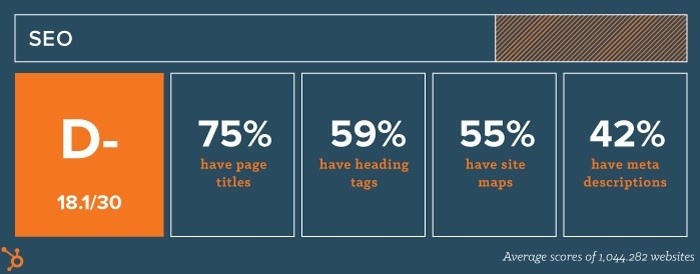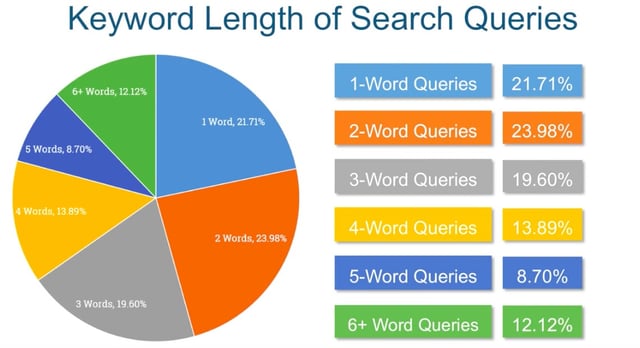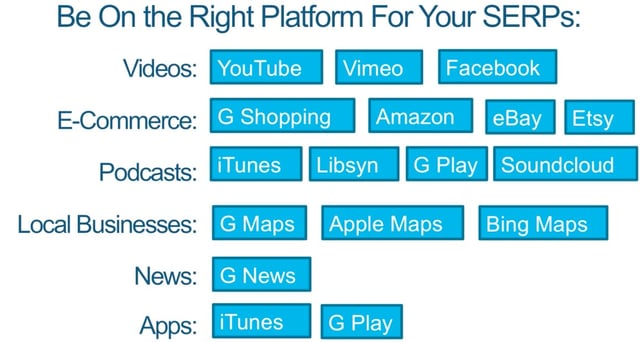How to Beat Google at Their Own Game: 6 Quick Tips for Conquering SEO
The Google algorithm is constantly changing. This makes it very difficult for marketers to consistently appear on the search engine results page. Most recently, we’ve watched advertising become much subtler in search engine results pages (SERPs), with paid Google advertisements appearing as almost identical to organic search results. Additionally, Google SERPs have migrated away from the traditional “ten blue links” format in favor of a much busier interface. Google is making these changes in an effort to confuse the consumer. It has been shown that when a change to the search engine results page is made, click-through rates drastically increase for a short period of time until the consumer becomes more familiar with the updated design. Because of this fact, we can expect Google to continue to change their SERP layout in the future.
So what does this mean for us? This means that search engine optimization (SEO) is a technique that marketers are finding increasingly difficult to manage. In fact, the average company receives a score of D- in their SEO strategy.

Everyone wants to appear at the top of search engine results in order to increase activity to their webpage. However, only 51% of all the clicks that happen on Google.com in the US go to organic, non-Google results. This means that 49% of all click-through searches link to something that Google owns – apps, ads, property, etc. Additionally, the number of “no click” searches is growing exponentially as a result of the feature snippets appearing in search, also commonly referred to as “answer boxes” or “number zero.” Currently, “no click” searches account for approximately 40% of all Google searches.
So how can we beat Google at their own game and increase our own organic click-through rate? This post is designed to provide you with actionable tips that you can use to improve your SEO strategy.
#1: Invest in Clickstream Data
Clickstream data is an information trail that a user leaves behind when visiting a website, providing us with information about all the pages that people visit. Obtaining this data comes at a cost, however the information you receive is invaluable for your SEO strategy. Thanks to Clickstream data, we know more about how searchers interact. In turn, we can analyze what is happening on average in web searches. This is especially important because Google will not provide this information to us. Using Clickstream data, we can determine trends that can help us optimize our SEO strategy. For example, Clickstream data allowed us to determine that the most common keyword length of search queries is two words long.

#2: Post Your Content in a Variety of Locations
It is recommended that you post your content in different locations in order to benefit from different kinds of SEO – on your own webpage, on Facebook, and on Google-owned platforms like Google Plus or YouTube. If you have a new video to post, it is recommended that you post it on your personal website first to take advantage of classic SEO. Then, a couple months later, upload this video onto a Google-owned platform, such as YouTube. This will allow you to benefit from a second wave of video SEO. By posting on your own personal webpage first, you are ensuring that you own the Google search traffic for that video. Additionally, your loyal consumers will know to come to your webpage first to view this content.
In the case of video, it is very tempting to post to YouTube immediately given the massive reach this search engine has; but, we also do not want to build a brand of people going to YouTube to watch our content. Despite this, we cannot entirely ignore the impact that Google-owned platforms can have on our brand. A lot of search activity takes place on these platforms, especially YouTube. For video, by executing a delayed post strategy on YouTube, you can also ensure that you are capitalizing long term on those additional clicks.
#3: Get Featured in Google Snippets to Boost Your Click-Through Rates
As previously mentioned, the introduction of Google snippets (or “number zero”), which was designed to help users answer basic questions, has drastically reduced the overall number of search click-through rates. However, research has shown that if you get your content featured in these answer boxes, it can substantially increase click-through rates to your website. This should be your primary goal when choosing keywords.
But how do we know which keywords to use so that we are featured in this number zero search position? There is one very important rule to remember: do not solely rely on Google Adwords to determine volume data for keywords. The numbers they provide are not real, they represent a range of potential outcomes – and these ranges are inconsistent. Additionally, Adwords is combining similar search terms into the same search bucket even if they mean two different things (example: flower market vs. flower shop). Adwords also hides a lot of high-volume queries that they know people commonly search for, making it difficult to obtain data for these terms.
The lesson we have learned here is simple: when choosing your keywords use other third party tools, such as Keyword Explorer by Moz, for higher accuracy. Ensure that you use these keywords in the page title, meta description, URL, and top few paragraphs in order to aim for that number zero position in the search results.
#4: Be On the Right Platform for Your Search Engine Results Page
Only ~3% of all Google searches result in the classic “ten blue links” page. More commonly, the SERP includes snippets, video results, news stories, Wikipedia links, image results, or paid advertisements. If you can get your website to appear on a traditional “ten blue links” SERP, you are likely to have a significantly higher click-through rate. However, this is very challenging to do.
It is more likely that your webpage will end up on the “busy” Google SERP, with many of the search results linking to other Google-owned platforms. These SERPs on average have much lower overall organic click-through rates. For this reason, you need to be aware of which platforms you should be on to optimize your search engine results. For example, Google most commonly provides links to YouTube videos on their SERPs. In some cases, it may be better to work with Google rather than fighting against them.

#5: Update and Republish Old Content to Increase Traffic
This is an important tip for bloggers, however it can apply to websites as well. If content is old or out of date, it is likely that visitors will choose to never return to your website. Due to high search competition, every single keyword you use matters. Websites that are using outdated keywords will not generate clicks and therefore will drop down in the search results.
Many bloggers have caught onto this and often update and re-promote their blog content in order to increase organic traffic. Additionally, you can refresh your content and promote on new mediums in order to generate new clicks. Increased site traffic will result in a higher search ranking.
#6: Don’t Discount Other Search Engines Just Because They Aren’t Google
Even though it is by far the largest, Google isn’t the only important search engine out there – shocking, right? When considering SEO, it is important to pay attention to these other search engines. To optimize your SEO power, look to see where your competition is getting their traffic from. Tools offered by companies like SimilarWeb or Jumpshot allow you to see where your direct competition is getting their clicks from, whether it be Facebook, Amazon, DuckDuckGo, or another search engine. This allows you to see where consumer traffic is coming from and optimize your SEO to target consumers in these alternative search engines.
Moral of the story: SEO is complicated.
And it continues to get increasingly more complicated. With Google constantly changing their algorithms and the design of their SERPs, you need to be constantly changing your strategy to maintain a high search ranking. There are a variety of tips and tricks out there to help you fight the ultimate SEO powerhouse – Google. The tips in this post can be used as a guide, in conjunction with other SEO hacks, to make you more competitive in search. Good luck in your SEO battle!



